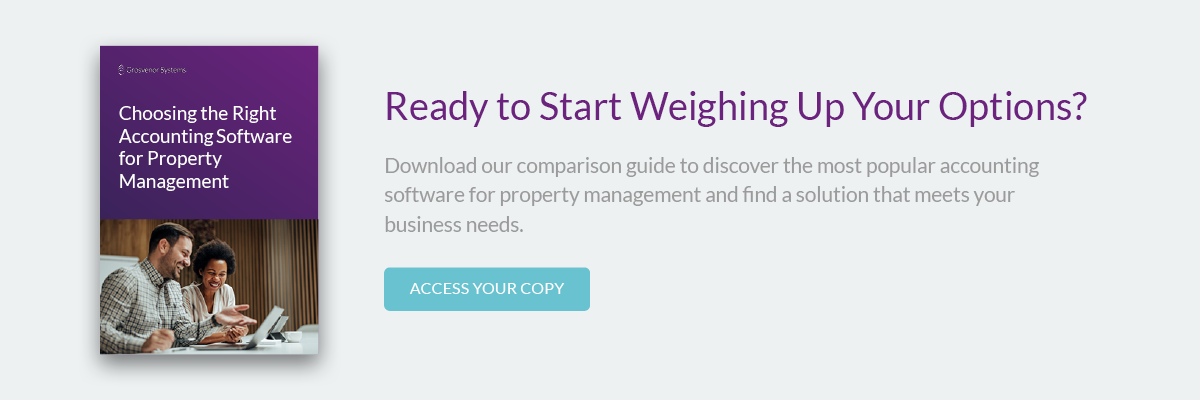The Property Manager’s Guide to Managing Payments
Managing payments is undoubtedly one of the most complex and time-consuming tasks you’ll ever experience as a property manager. Yet, unfortunately, it isn’t something you can shy away from.

In this blog, we’ll discuss why payments deserve all the attention they can get and how to make property management payments a little less taxing with the help of technology.
Managing Property Payments Is Both Important and Difficult
Managing payments is an important part of a property manager’s job. Without efficient payment management, contractors working on site would not be paid in a timely manner thus impacting the provision of works and potentially leading to tenants refusing to pay their service charges.
At the same time, managing payments is one of the most difficult parts of a property manager’s day-to-day duties. From remembering to send out reminders and attributing invoices to charging the correct amount and reflecting it in your accounts, there are many moving parts to managing payments.
Property managers need to have some accountancy skills — but more than this, they need to have the right data at their fingertips and a way to clearly orchestrate and template the entire financial process.
Enter proptech.
How Technology Can Help
Proptech plays a large role in relieving the struggle of property management payments. Many proptech systems — Propman included — help unite siloed teams, bringing administrative and accounting actions together under one roof. In doing so, everyone gains all-important visibility to make the payment process more streamlined with invoices and communications in one place.
Data also benefits from this shift as it can be housed in a single source of truth, in time building a vaster landscape to paint a sharper picture of property management payments. Although different team members may have varying levels of access to the platform, each team member will be able to pinpoint the information they need regarding a person’s account and messaging history.
As such, reminders can become more relevant and accurate, increasing the chance of timely payment while enhancing customer satisfaction levels in the background.
This change will mean tenants never have to chase for amended invoices or be missed off the reminder list entirely, but that notifications can be handled with the help of automation to remove stress from our internal customer — the property management team.
Automation is emerging to become one of the property management tools with the most power, saving teams precious time once spent manually enrolling tenants into a messaging list and scheduling notifications.
Although automation isn’t a final solution for property management payments, it does help increase payment rates and clarify which accounts are still behind on payments. With the help of proptech, problem accounts will be highlighted, allowing you to focus on resolving outstanding invoices as a priority. The rest? Well, that’s up to the system, so long as you’ve programmed it right.
How to Be More Organised With Payments
While proptech certainly puts some power behind your payment management plan, it isn’t an alternative to ‘doing the work’. Some of the onus is on the property management team to use Proptech optimally while following up on tasks that require manual input. It’s a case of working smarter — but still working.
Prioritise Proptech Training
Remember; knowledge is power. To get ahead with property management payments and use proptech to its full potential, you’ll need to invest some time in training to use the platform to your advantage.
Don’t forget to roll out the training to all of your team members too, especially if they’ll be involved in financial processes. At every step of automating and tweaking payment chasing, inform your team of the change so everyone knows the new process.
The moral of the story? If your new proptech provider offers a free demo of their software or a learning portal, embrace the opportunity with open arms.
Spread Accountability
Managing payments is a shared responsibility — or it should be. The more people invested in payment chasing and your business' bottom line, the more chance you have of succeeding.
For example, it shouldn’t just be that accountancy teams are invested in financial processes. Administrative and customer-facing teams should also bear some of this weight, helping push for payments as an individual with more contact with the source. When we change our mentality — and in some ways, our culture — to be more about teamwork, property management payments become easier.
All-in-one software helps rewire teams by providing the same sense of place and a shared space for working, sharing and progressing projects.
Communicate Its Value
Every property management team member must understand how important payments are to running a business. That’s when teams will become laser-focused on making this area of business operations as efficient as possible.
Although it sounds obvious, we can all get caught up in the day-to-day, being guilty of prioritising less critical actions. If an administrator has a task to organise maintenance work, for example, they might become more concerned about the logistics of the maintenance work than the invoicing aspect.
Invoicing and payment always have to stay top of mind so that any and every piece of work is worthwhile. Being more open about financial reports, targets and successes can allow teams to adopt a finance-first attitude where they’re aligned with the wider business objectives.
Anticipate Market Change and Prepare for Management Obstacles
Unsure whether to move away from spreadsheets and consolidate your accounting processes into one easy-to-manage solution? Download our resource to find out more about how making this switch could help you save time and money.
.png?width=1920&height=941&name=GS%20white%20clear%20(Large).png)


